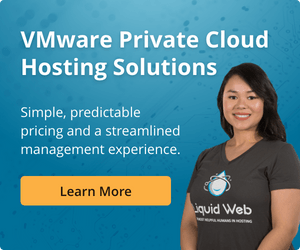An Overview of Phased Migrations for Enterprises
When it comes to the hosting needs of newly created companies, many choose to go with either dedicated or multi-tenant private clouds that run on virtualization software, such as VMware.
Private clouds have a variety of benefits. First, they provide scalability without the need to reconfigure the underlying environment. They are also flexible, with the ability to tailor the whole setup to your needs. Third, they are cost-effective, only charging you for what you actually use. And, finally, they are easy to operate since the hosting company takes care of all the server infrastructure and hardware.
For companies that have been around for a long time, however, taking advantage of everything private clouds have to offer comes with the much-dreaded phase of server migration.
Below, you will find out why traditional server migrations are challenging to execute, along with a few examples of different types of companies that make the perfect fit for a phased migration approach with VMware Private Cloud.
What Makes Server Migrations Difficult?
Server migration simply means replacing your server with a better option while copying all the data over simultaneously. It’s an inevitable process that all companies have to face at some point as they outgrow their current server capabilities, discover significant cost savings in switching solutions, or realize that their existing hosting infrastructure is old and no longer efficient.
The obvious critical goal of migration is ensuring that every bit of data is transferred and works just as well in a new environment. However, since most server setups accrue lots of technical debt, errors, and poor decision-making, their migration process becomes more complex and much less straightforward.
The key is not to get overly ambitious and try to make the migration happen in a week or as quickly as possible. Taking the time to plan the execution and testing process carefully will help avoid a lot of problems.
Successful migrations don’t have to happen all at once. In fact, phased migrations carry the smallest amount of risk, letting you move and test non-critical parts of your server environment first before touching the high-traffic areas.
VMware Private Cloud represents a perfect phased migration destination for most small and mid-sized companies that value flexibility, cost-effectiveness, and ease of use. Take a look at the following examples of common server environments that illustrate the benefits of switching to a private cloud.

Phased Migration by Server Type
Dedicated Servers
Lots of media organizations and websites (e.g., large round-the-clock newspapers) run on multiple dedicated servers. They know that the change is due but can’t imagine migrating their massive archives to a new environment.
VMware Private Cloud can be the answer. Utilizing a phased migration, a newspaper can first move non-critical parts of its operations to a new high-scale environment, such as article archives or a subscriber database. Then, they can slice the servers and move them one at a time as they see fit, making sure everything remains stable, predictable, and secure.
The migration might stretch over several months, but there’s no hurry since they only pay for what they use in a private cloud environment. Most importantly, the process won’t disrupt the operations, and the most critical parts can be migrated over last.
Virtual Private Servers
Most companies just starting out tend to go with VPS hosting — it’s cheap and easy to get going — and accumulate more virtual private servers as they grow.
At some point, their VPS network becomes more difficult to manage and fails to support the scalability of the business. This is the ideal time to look for more scalable solutions, such as VMware Private Cloud.
Again, the phased migration approach is best. There’s no need to collapse all virtual private servers at once. It’s possible to transfer only those servers that require more scalability first or those that experience high fluctuations and seasonality in their workloads, such as around the holidays.
For example, you can first transfer a few servers to carry the seasonal load to avoid straining your VPS resources. In the end, you’ll only pay for the resources used. Then, after the shopping season is over, you can migrate the rest of the environment in a phased approach.
On-Premise Servers
There are tens of thousands of companies in the U.S. that still use on-premise servers (if not just dedicated always-on computers) for hosting their data. Unfortunately, most of those servers contain aged hardware, are not well maintained, and require replacement.
For these kinds of situations, switching to VMware Private Cloud could be one of the best moves. Rarely does anyone want to be responsible for a room of outdated servers with decades of data stored on them.
A private cloud can offer an exact replica of the on-premise environment when it comes to operating systems and software and add scalability, continuous management, and flexible pricing. The best part is that a phased migration to a private cloud can adjust to the business's needs and timelines.
Liquid Web’s Migration Support
Whether you’re in an exploration phase or already planning your server migration, Liquid Web can help you set up a migration game plan and take everything related to the server and environment-side setup off your plate.
As a result, you don’t have to worry about configuring specific servers, PHP settings, firewalls, backups, or security. Just get your data and content over, and the migration is complete. Liquid Web can also accommodate any custom requirements, such as integrating your own backup system, firewall, virtual client, or load balancers.
Are you considering a phased migration and ready to give VMware Private Cloud a try? Contact us today, and a friendly technician can help tailor the migration process to your needs.

Melanie Purkis
Melanie Purkis is the Director of Liquid Web's Managed Hosting Products & Services. Melanie has more than 25 years of experience with professional leadership, project management, process development, and technical support experience in the IT industry.
Keep up to date with the latest Hosting news.



